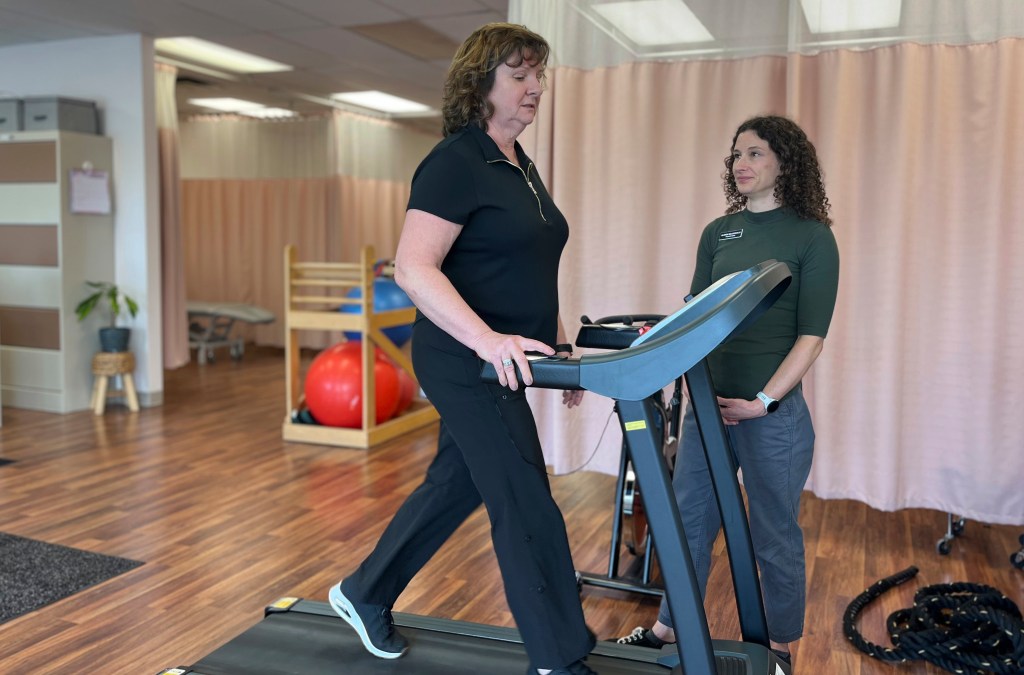A three-year training program improved survival in patients with colon cancer and maintained disease in the breast, a first experiment of its international type said.
With the benefits that rival some medicines, experts said cancer centers and insurance plans should consider making it a new standard of care for survivors of colon cancer.
“This is about a high quality of rehearsals how much you can get,” said Dr. Julie Gralow, the main medical officer of the American Association of Clinical Oncology. “I love this study because it’s something I have promoted, but with less strong evidence for a long time.”

Preliminary evidence was based on comparing active people with sedentary people, a kind of study that could not prove cause and effect.
The new study – conducted in Canada, Australia, the United Kingdom, Israel and the United States – compared people who were accidentally chosen for a training program with those who received an educational brochure instead.
The findings were presented Sunday at the ASCO annual meeting in Agoikago and published by the New England Journal of Medicine. Academic research groups in Canada, Australia and the United Kingdom funded the work.
Researchers attended 889 patients with colon treated cancer who had completed chemotherapy. Half was given information that promotes fitness and food. Others worked with a coach, meeting every two weeks for a year, then every month for the next two years.
Coaches helped participants find ways to increase their physical activity. Many people, including the Swain-Collins, chose to walk about 45 minutes several times a week.
“This is something I could do for myself to make me feel better,” said Swain-Collins, 62, from Kingston, Ontario. Regular contact with a friendly coach kept her motivated and responsible, she said. “I wouldn’t want to go there and say,” I didn’t do anything “, so I always did things and make sure I did.”
After eight years, people in the structured exercise program not only became more active than those in the control group, but also had 28% less cancers and 37% fewer deaths. There were more muscle strains and other similar problems in the group of exercises.

“When we saw the results, we were just surprised,” said study co -author Dr. Christopher Booth, a cancer doctor at the Kingston Health Center in Kingston, Ontario.
Exercise programs can be offered for several thousand dollars per patient, Booth said, “an extremely affordable intervention that will make people feel better, have less cancer relapse and help them live longer.”
Researchers collected blood from participants and will require data on linking cancer prevention exercises, whether through insulin processing or immune system construction or something else.
The Swain-Collins training program is over, but it is still exercising. She listens to music as she walks in the village near her home.
This kind of behavioral change can be achieved when people believe in benefits, when they find ways to make it fun and when there is a social component, said the letter co -author Kerry Courney, who studies exercises and cancer at Alberta. New evidence will give patients with cancer a reason to stay motivated.
“Now we can say that exercise eventually causes improvements in survival,” Courneya said.
#Affordable #habit #increases #levels #survival #colon #cancer #medicine
Image Source : nypost.com